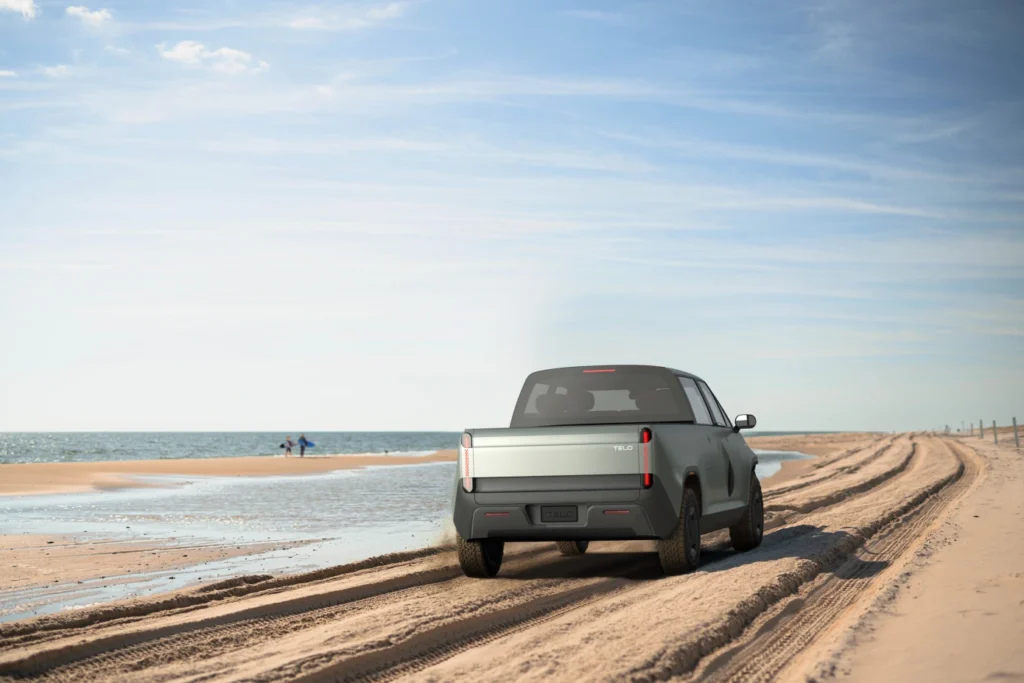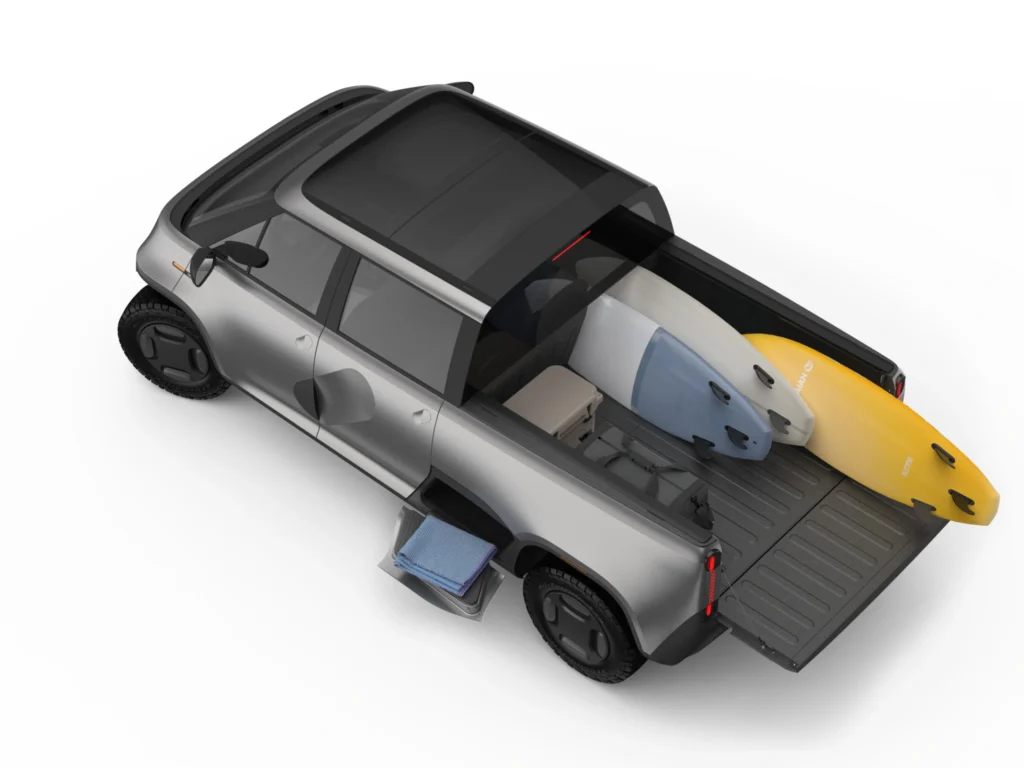In a world dominated by oversized trucks, one startup dares to go against the tide. Telo Trucks believes that there is a demand for small electric pickup trucks in America, catering to urban dwellers who need a compact and environmentally friendly cargo utility vehicle. While established automakers continue to focus on larger trucks like the F-150 and Silverado, Telo is betting on the untapped market of city residents who find traditional trucks too big and heavy for their needs.
Telo CEO, Jason Marks, envisions a future where petite pickups with the “footprint of a two-door Mini Cooper” and the “interior and bed space of a Toyota Tacoma” roam the streets. Marks argues that these smaller trucks are not only safer for pedestrians and cyclists but also more aligned with decarbonization efforts. By avoiding the excessive raw materials and larger batteries required by their larger counterparts, compact electric trucks like Telo’s could offer a greener alternative without compromising functionality.

To gauge the interest in their concept, Telo recently launched preorders for their first vehicle, with an impressive response. Within just 12 hours, they received over 500 preorders, signaling a potential market demand for their pint-sized pickups. Priced at $50,000 before government incentives, Telo’s truck is designed to seat five adults comfortably, accelerate from 0 to 60 mph in four seconds, and offer a range of 350 miles. The renders of the vehicle showcase a sleek design with minimalistic features, perfect for loading surfboards or catering to the needs of gardeners, hikers, and snowboarders.
Telo is not without its challenges, but the startup remains optimistic. Marks and co-founder Forrest North, who previously worked on autonomous driving features at National Instruments and Tesla’s Roadster team, respectively, combined their expertise and passion for electric vehicles to create Telo. Their shared vision and a fortuitous encounter with investor GoAhead Ventures at the gym led to the formation of Telo Trucks and subsequent funding. To further enhance their team, they brought on board renowned designer Yves Behar, known for his work on Jawbone and XO laptops, as the head of design.

One of the advantages Telo Trucks holds over early electric vehicle companies is the ability to leverage existing supply chains and off-the-shelf components. This allows them to focus on the critical aspects of their vehicles, such as safety, battery technology, and packaging. Telo’s patent-pending battery packs are said to be smaller and lighter than any other electric vehicle battery currently on the market. By capitalizing on these advancements, Telo aims to keep costs in check while delivering a superior product.
However, the road to success in the electric vehicle market is challenging, and many startups have struggled to turn their cool ideas into profitable ventures. Manufacturing, scaling, and profitability remain significant hurdles in the competitive automotive industry. Consumer preferences and market trends can also shift unexpectedly, making it difficult to predict long-term success.
Despite these challenges, Telo Trucks is determined to carve out a niche for itself by targeting the urban market with its petite electric pickups. While the future remains uncertain, the initial response to their preorders indicates that there is indeed interest in their unique proposition. As Telo works towards developing its first prototype and navigating regulatory requirements, the industry will be watching closely to see if this startup can translate its vision into a successful business model. In a world that desperately needs sustainable transportation options, Telo Trucks might just be onto something with their dreamy little pickup.
It’s worth noting that the success of any startup in the electric vehicle market is uncertain. While there may be demand for small electric pickups, the challenges of manufacturing, scaling, and turning a profit in the competitive automotive industry are significant. Additionally, consumer preferences and market trends can change over time, making it difficult to predict long-term success.
Overall, the success of Telo Trucks will depend on various factors, including market demand, execution of their plans, competition, and regulatory landscape.
Also Read: Healthtech
